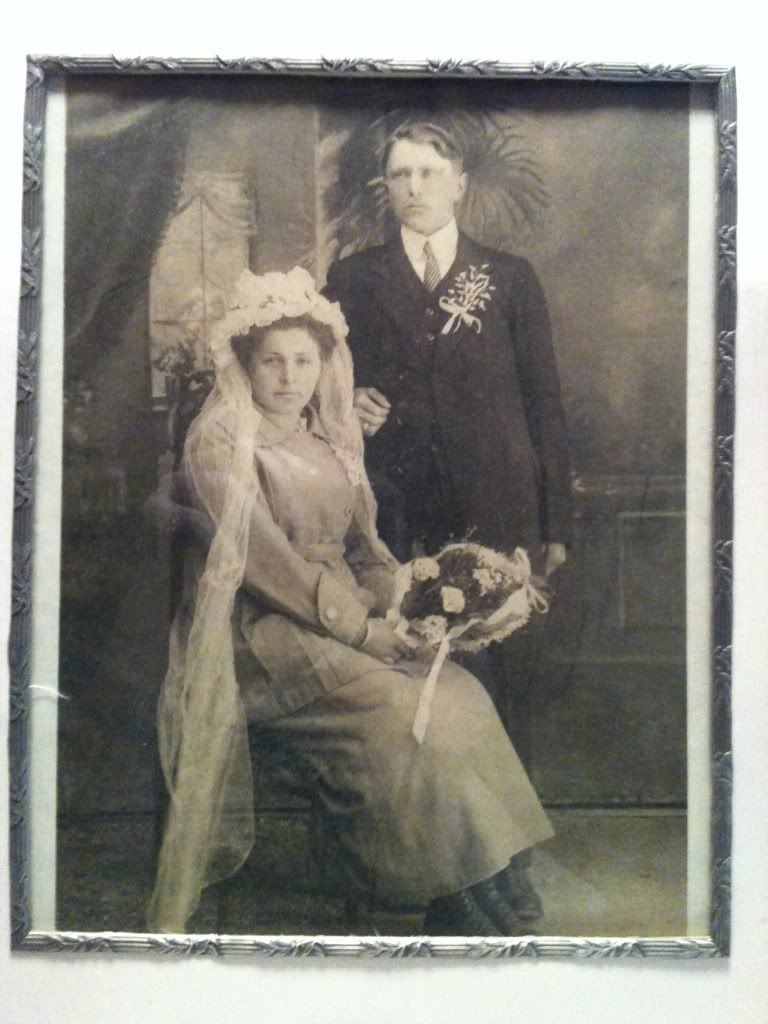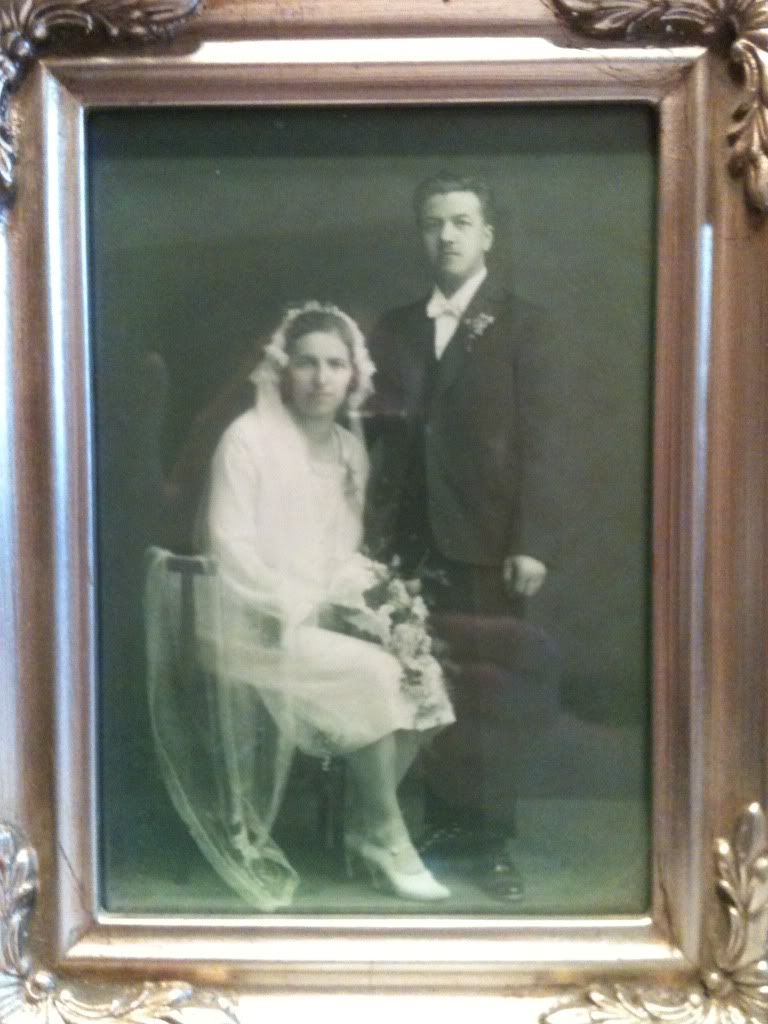Angela Ravnik was the youngest of five children from a second marriage. Her father was a well-to-do farmer, and that enabled her and Anna, her sister, to attend the Womens Academy. Grandma became a schoolteacher.
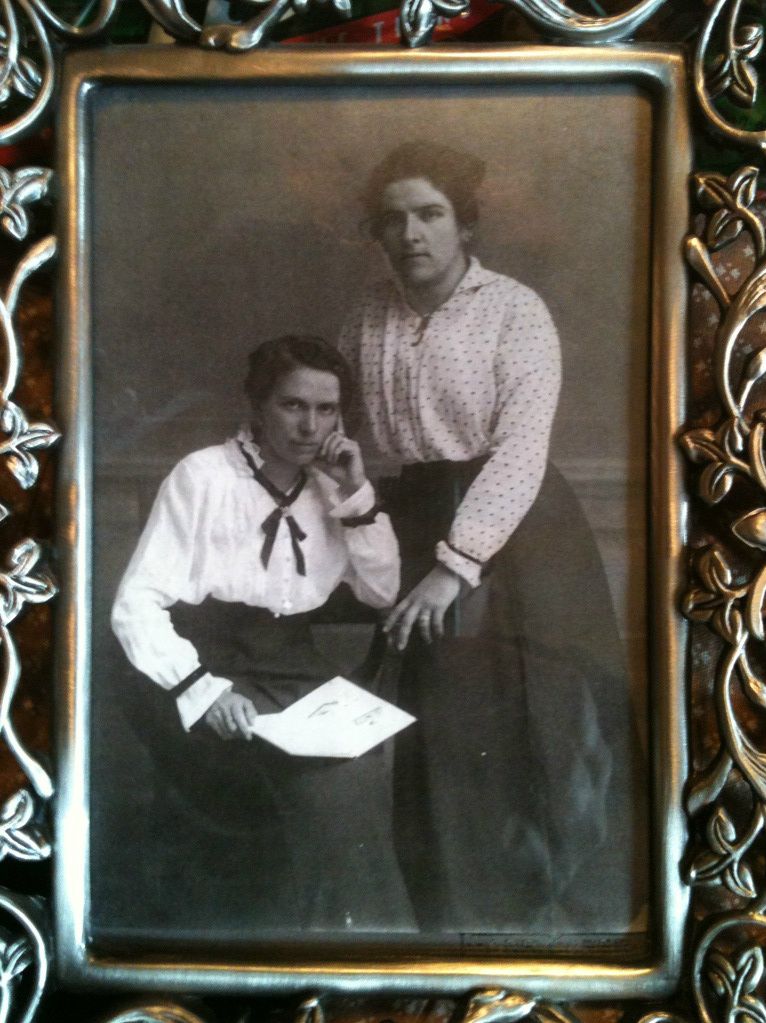 |
| Anna and Angela Ravnik, 1923 schoolpicture |
My grandmother was an artist who painted with oils and watercolors. She most enjoyed painting still lifes. Angela was also a skilled writer. Her stories were sometimes published in the Ljubljana (capitol of Slovenia) daily paper. Grandma was an accomplished sewer, hand making intricate open embroidery. Open embroidery, or cut work embroidery, is the kind of sewing where the material left on the inside of the patterns is painstakingly cut out. Delicate work like this is all done by machine now. Grandma also cross-stitched and embroidered, using her own designs. It's amazing how much she could create.
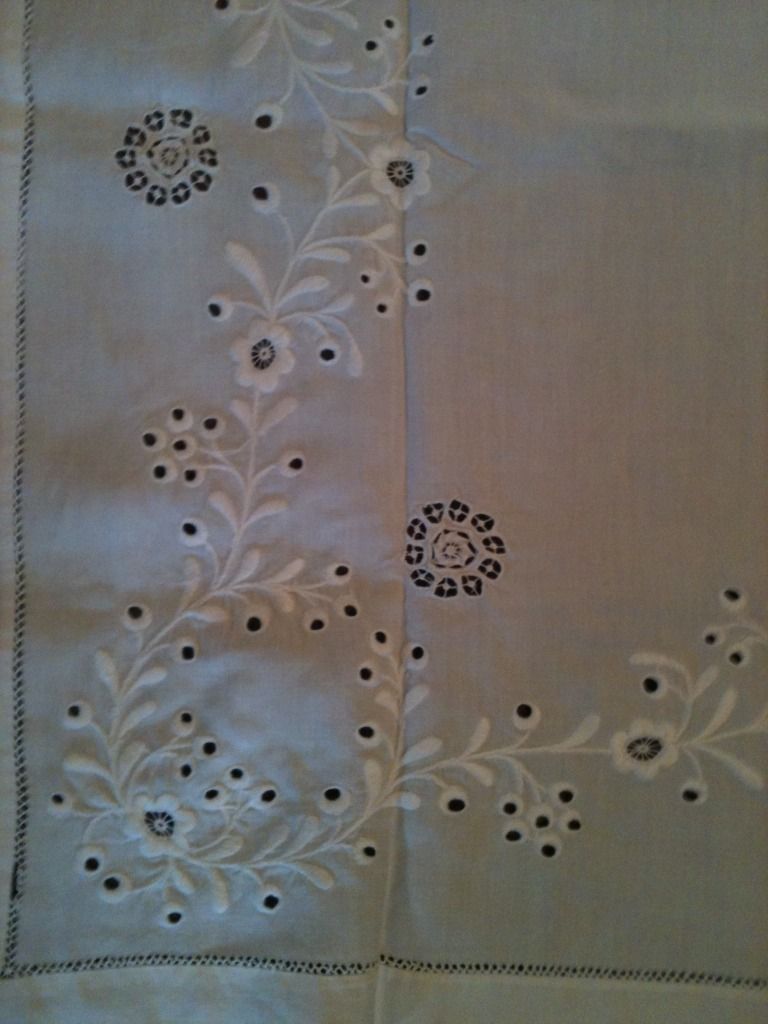 |
| Hand-sewn cut work embroidery |
My grandparents were world wise, in the way that they embraced many cultures. Grandma could make fine Turkish coffee and a variety of pastries. Homemade bread was a staple. All baked goods were made from scratch. Grandma would make the multi grain dough in the morning and shape the loaves. The loaves were taken to the local bakery in a special basket, where, for a nominal fee, the bread was baked. When the children came home from school, they would pick up the bread and bring it home.
I believe I inherited my grandmother's creative talents. Artwork is one of my passions, along with writing. I love to sew by hand, although I have nowhere near the skill she did. I am so proud and thankful for the true pioneer spirit that was passed down, first to my mother, and then to me.
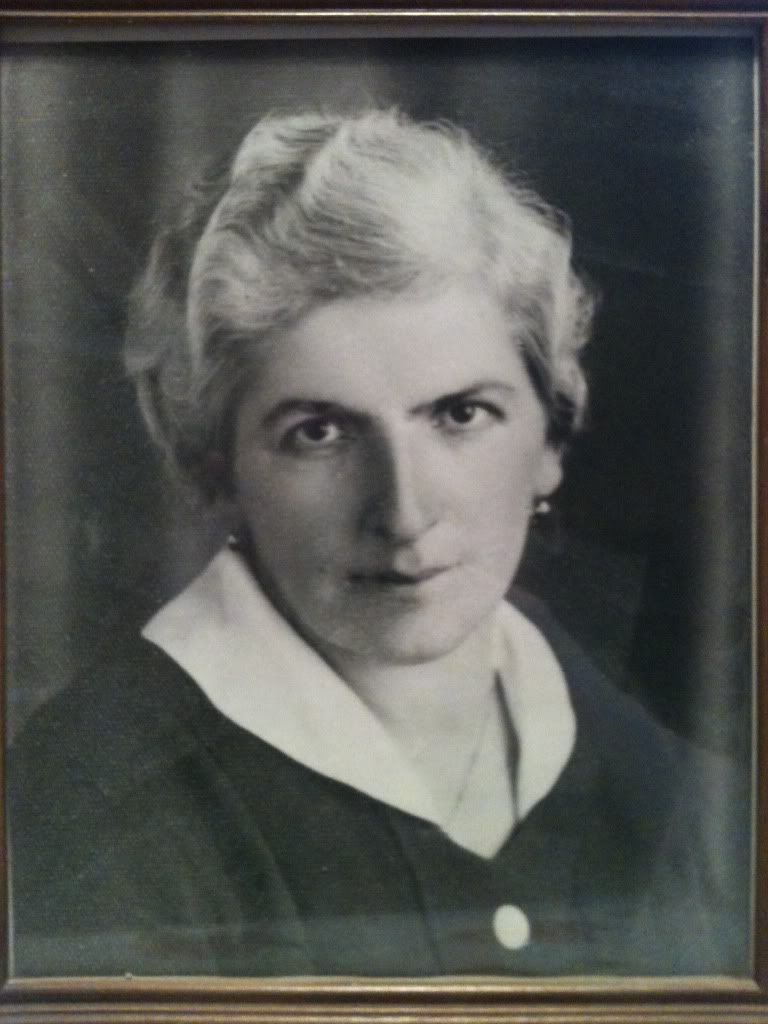 |
| Moja Stara Mama, z Materine Strani, (My Maternal Grandmother) |
Hvala stara mama, da sem podedovala Tvoje talente in da me spomin nate spodbuja, da ti sledim v duhu in delu.
Ljubim Te.
Ljubim Te.
Thank you grandma, that I inherited your talents, and that memory of you encourages me to follow you in spirit and deed. I love you.
Proverbs 17:6 - New International Version 2011® (NIV)
6 Children’s children are a crown to the aged, and parents are the pride of their children.
6 Children’s children are a crown to the aged, and parents are the pride of their children.
Written by Ivica Dular-Golobič
Editor-In-Chief and Translator: Marie Dular
